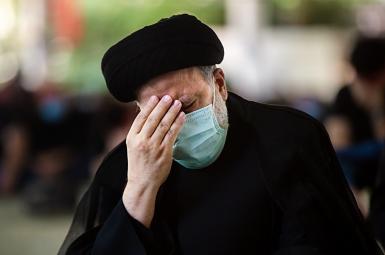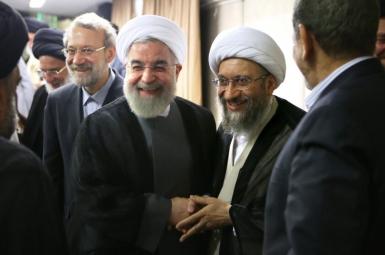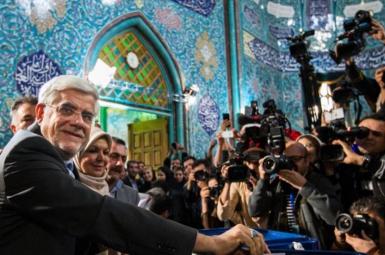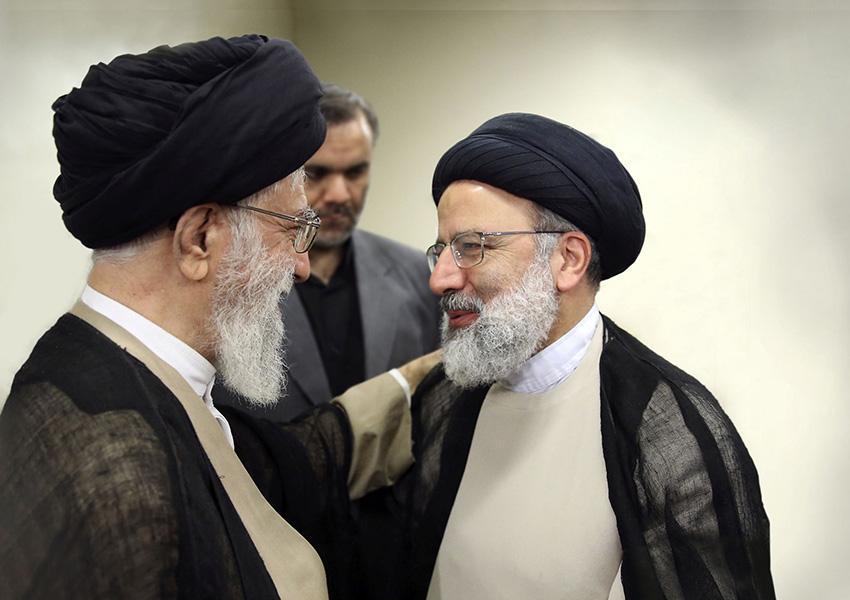
Iran's Conservatives Likely To Support A Hanging Judge In Presidential Election
An increasing number of Iranian media outlets and political figures appear to have concluded that Iran's hardline Judiciary Chief Ebrahim Raeesi (Raisi) will be the choice candidate for Iran's conservatives in the June presidential election.
The election system in Iran is tightly controlled by hardliner supporters of the Supreme Leader and voting takes place after the Guardian Council vets all the candidates and narrows down their number from several thousands to a few selected men loyal to Supreme Leader Ali Khamenei and his regime.
Last year’s parliamentary election showed that the Council can bar dozens of leading reform camp politicians from running and hand over power to one camp. Raeesi's record of having been one of the officials in charge of killing thousands of prisoners in 1988 gives him an advantage in the eyes of conservatives.
One of the latest analysis about Raeesi's possible candidacy in the June 2021 election has appeared in proreform news website Fararu, where reformist pundit Sadeq Zibakalam has explained why the chief judge has the upper edge.
According to professor Zibakalam, the conservatives or ‘Principlists’ wish to have a candidate capable of winning a high number of votes. At the same time, they want their candidate to win the support of all the fragmented parts of the conservative camp and to bring them together at the polls.
The pundit opined that Raeesi is the only conservative candidate who can win a sizeable number of votes and receive the support of all the sub-factions including traditional conservatives, moderate conservatives, as well as the Iranian neo-cons and the ultraconservatives.
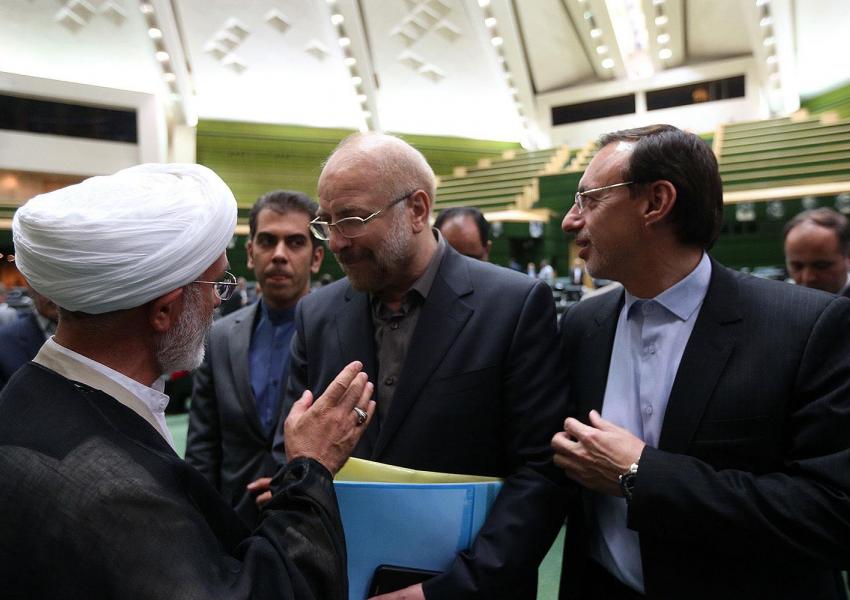
In Iran's latest presidential election in 2017, Raeesi won over 16 million votes, the highest number ever claimed by any conservative figure in Iran. His voter base was mainly located in the marginal provinces where low-income Iranians live.
During the 2017 election campaign, Raeesi traveled to many underprivileged provinces distributing cash and essential commodities among low-income families. Since then, he has been regularly visiting various provinces during the past four years, meeting with workers, craftsmen, farmers and other members of the working class promising a better future and garnering support.
Even widespread media reports about Raeesi's role in gross human rights violations in the massacre of Iranian political prisoners in 1988 did not prevent him from winning the unprecedented number of votes.
Raeesi's most powerful rivals in the conservative camp, Majles Speaker Mohammad Bagher Ghalibaf appears to have withdrawn his candidacy although he never officially declared his willingness to run for President in 2021.
Last week, a prominent member of the parliament Mohsen Pirhadi wrote in a tweet that Ghalibaf is no longer interested in running in the presidential election and that he prefers to help Raeesi who is likely to run as a conservative candidate.
Although Pirhadi linked Ghalibaf's decision to "the country's sensitive situation," the Parliament Speaker has likely withdrawn his candidacy after his diplomatic failure during a recent visit to Moscow where he was not allowed to meet with Russian leader Vladimir Putin. He also did not win the battle against President Hassan Rouhani over the annual budget bill.
On the other hand, while Raeesi has always offered populist solutions for various problems particularly economic difficulties, Ghalibaf and other conservative hopefuls have repeatedly highlighted the problems but never offered a solution.
In 2017 also Ghalibaf withdrew his candidacy at the last moment to help Raeesi who eventually lost to Hassan Rouhani.
All that said, the principle of uncertainty in Iranian politics also prevails in this case, as others at the Majles say Ghalibaf might still run for presidency, and others in the conservative camp believe Raeesi might not relinquish his position at the helm of the Judiciary for an executive position with limited powers.
Nonetheless, no reformist candidate, military candidate, or other hopefuls are likely to garner as much voted as Raeesi received in 2017. Reformists have lost much of their public support, unable to solve the country’s economic problems or protect civil rights.
Raeesi has two more advantages other than the absence of a popular reformist candidate in the upcoming election. Since 2017, Raeesi has maintained an enviable foothold in the state television that broadcasts all the news about his visits and speeches and highlights his every single public presence. On the other hand, the Supreme Leader Ali Khamenei and the IRGC have always welcomed his presence in positions of power. In one of its latest commentaries, the IRGC's news agency Tasnim pointed out his "efficiency and competence to meet popular demands," and added that "If Raeesi becomes a candidate for presidency, he has a good chance of winning the election and using his unique capability to bring about a consensus in the conservative camp over a single candidate."

